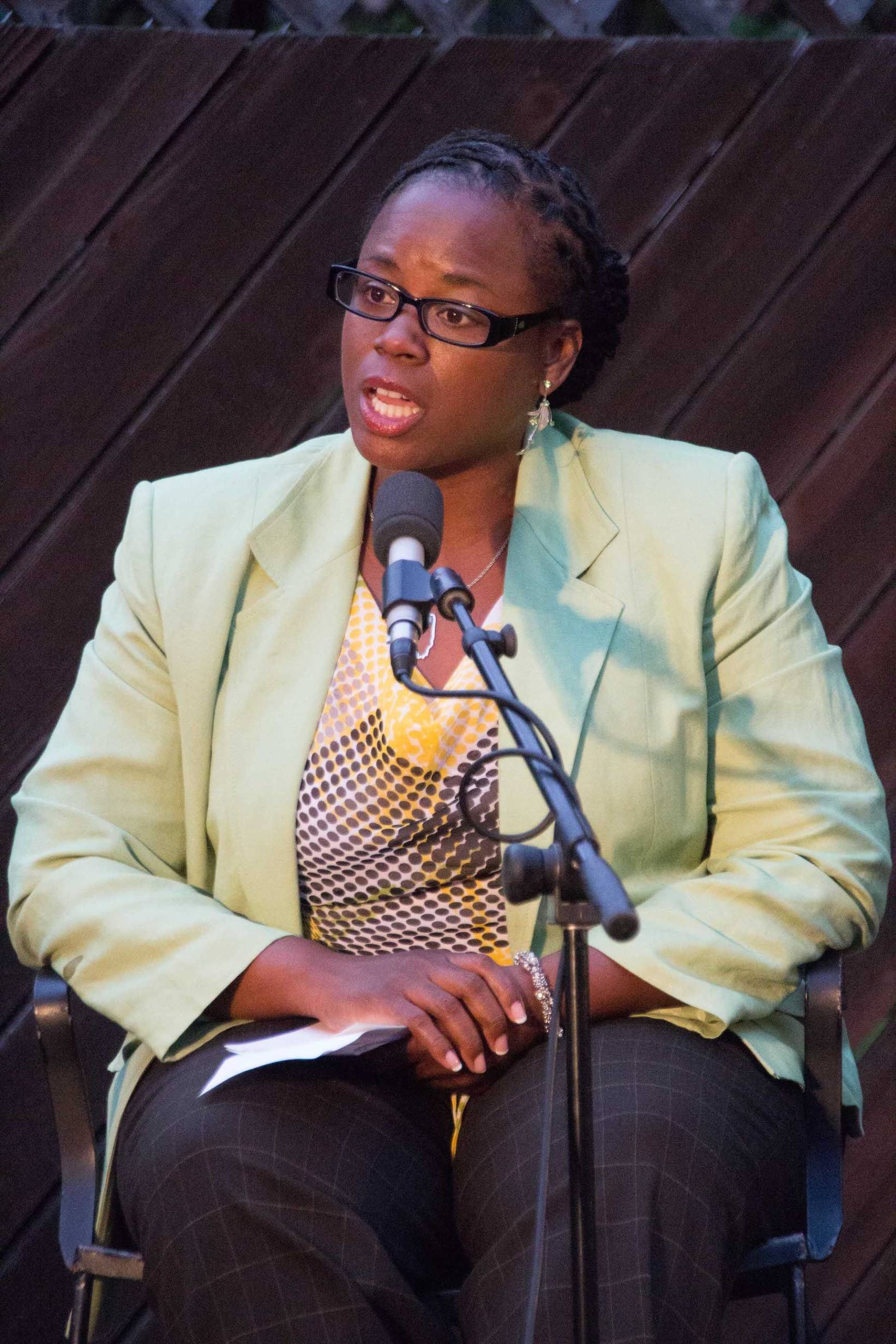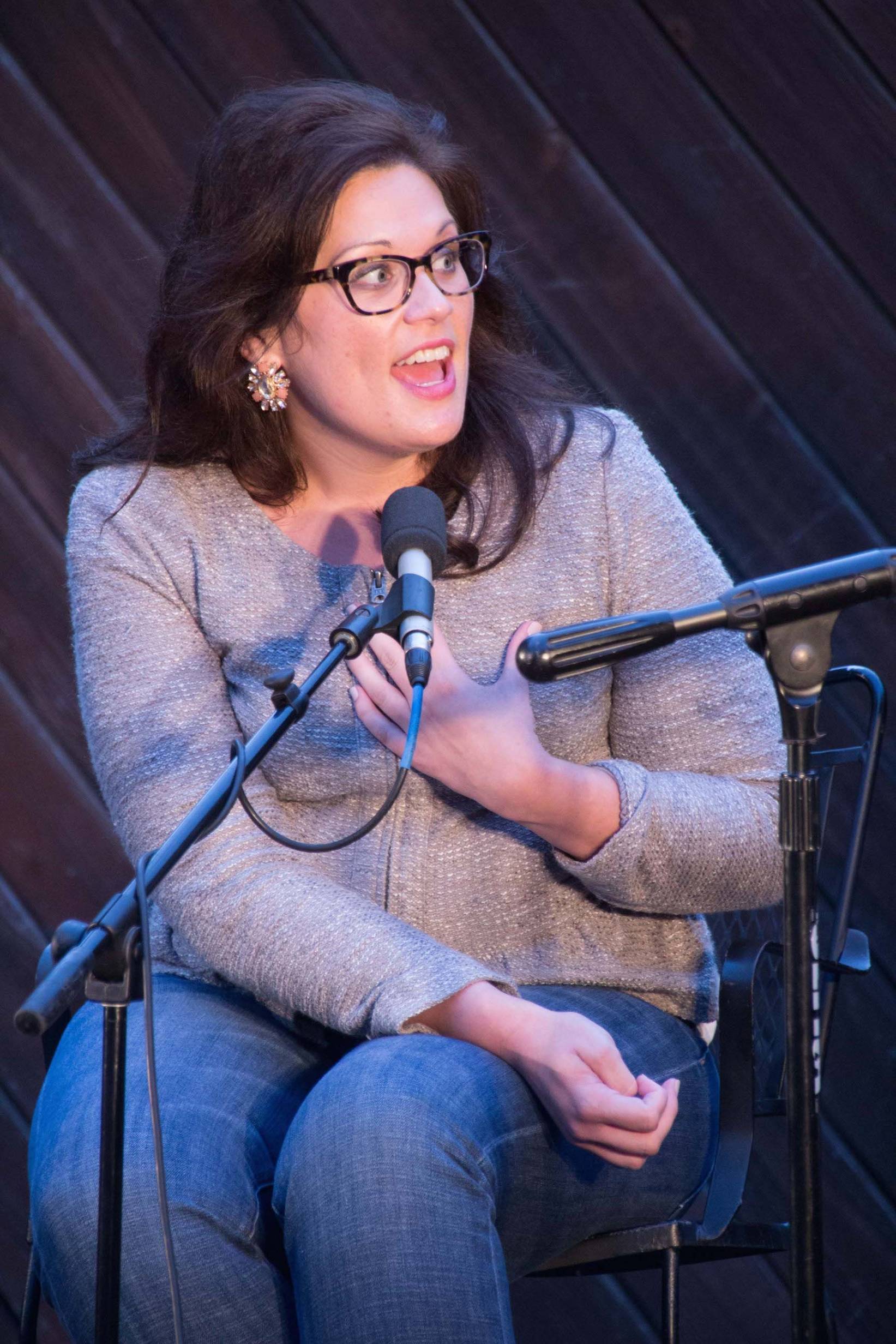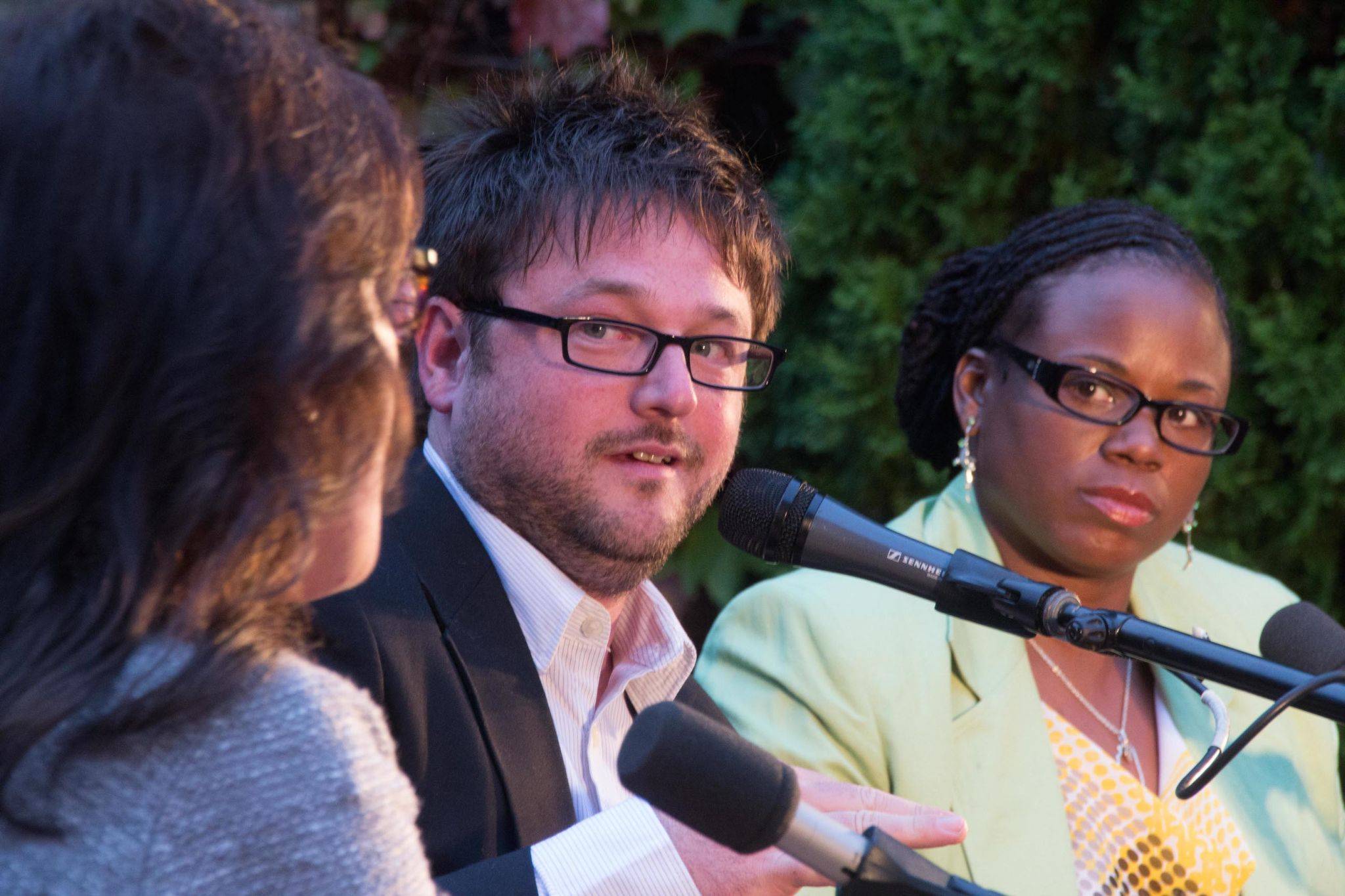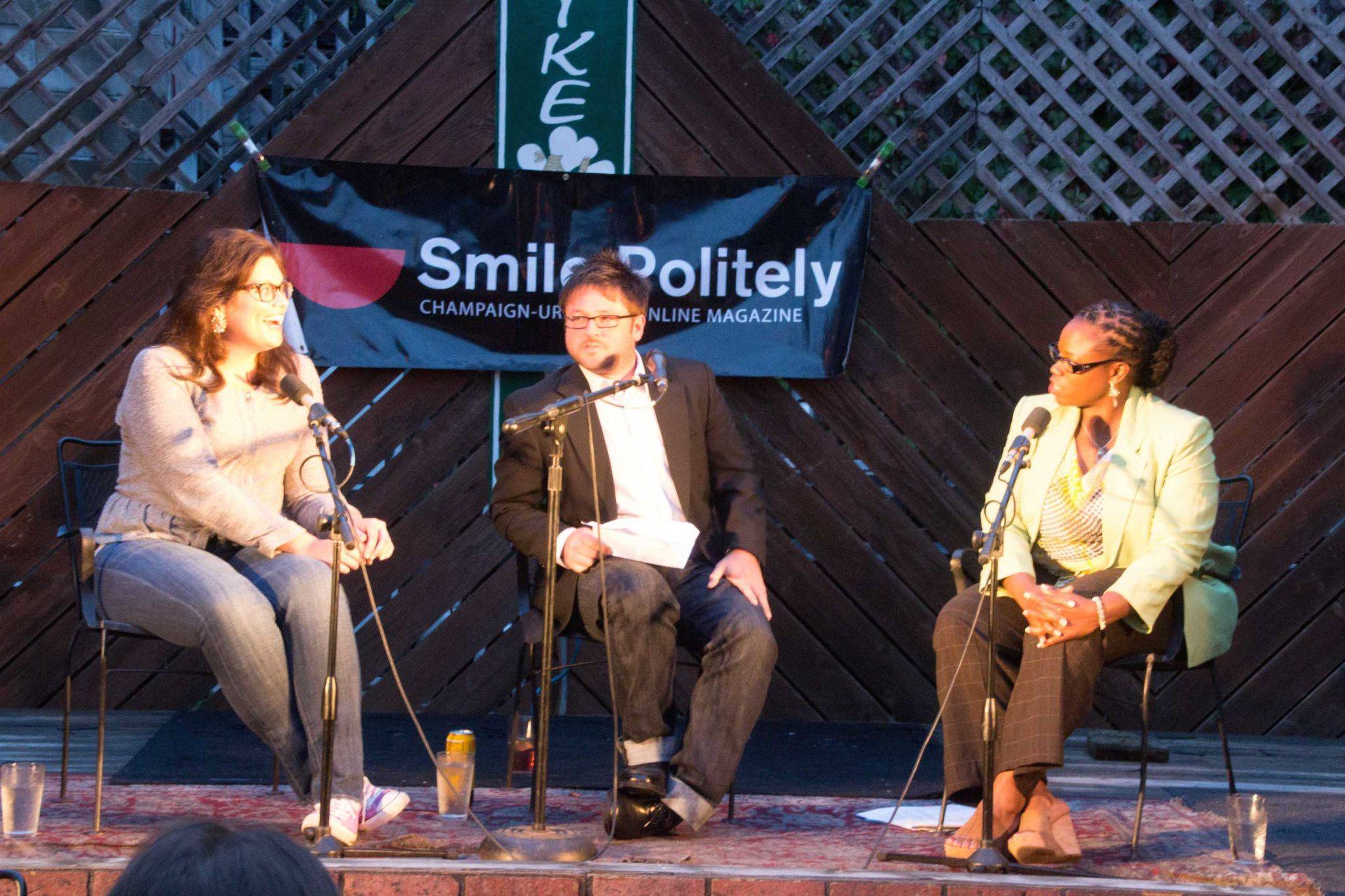This past Thursday, two candidates for the IL-103 State Representative seat braved the ominous looking weather to sit in Mike ‘N Molly’s beer garden and answer eleven questions from Smile Politely readers and editorial staff.
Here’s a video of the event:
And here’s what we asked them:
- What would be your first priority if elected, and why?
- Do you support GOP candidate Bruce Rauner’s plan to implement right to work in our state?
- What do you think the minimum wage in our state should be, and what would you do to create more jobs within that minimum wage structure?
- In 2012, The Illinois General Assembly passed a bill that allows regional medical centers to deduct the claimed value of charity care from local property taxes. This legislation hits the City of Urbana harder than any other community in Illinois due to the fact that a very large, regional medical center is located in our small city. What specific plan do you have for relieving the devastating impact of this legislation on Urbana taxpayers?
- Would you oppose replacing defined pensions with defined contribution plans for state pensions?
- What is your stance on the decriminalization, and subsequent legalization, of marijuana?
- If elected, would you protect a woman’s constitutional right to choose and, if so, how?
- What would you do to address the rising costs of education for Illinois students?
- What do you think of Coors Light being the official beer of intercollegiate athletics? Should it be okay for adults to drink a beer while watching football?
- Would you support a plan to end teachers’ tenure? Why or why not?
- Was Chancellor Wise and the U of I Board of Trustees correct in rejecting Steven Salaita’s appointment to the American Indian Studies Program? And, relatedly, what is your position on the Chief?
One of the main takeaways from Thursday’s debate is that these candidates know how to answer questions succinctly and (for the most part) directly. Moderator Seth Fein told them that their answers needed to stay in the 2-3 minute range, but in almost every case, that guideline was completely unnecessary — both Ammons and Williamson responded with answers near the thirty-second mark for every question.

Ammons brought her professional A-game, answering many of our questions with specific reference to her experiences on the Urbana City Council, meetings with local community members, or reference to facts and figures. For instance, while discussing minimum wage, Ammons pointed to a letter from over 600 economists who wrote to the federal government to advocate for a higher minimum wage.
Best Answer
Speaking of minimum wage, Ammons’ answer to this question was, in my view, her strongest answer of the evening. She spoke passionately yet convincingly about where she would like to see minimum wage be at in this state: $10.10 an hour to start, and indexed so that it would continue to raise in the coming years. She mentioned that while some people were shocked in the primary to hear her advocate for a $15 an hour minimum wage, she believes that minimum wage should ultimately approach $17 an hour, though as a first step, she supports the governor’s plan to pass legislation for a $10.10 minimum wage. Her rationale included the point that people should be able to work one job and still have time for other aspects of their lives, such as parenting, which she noted that many people who have to work multiple jobs miss.
Worst Answer
I was less convinced by Ammons’ answer to our final question, especially the portion that referenced Steven Salaita. Ammons largely deflected this question, noting that while the issue “brings to surface the process of hiring at the University of Illinois,” people she spoke to while walking door-to-door were more concerned about jobs and unemployment. After redirecting the question to a topic with which she obviously felt more comfortable, Ammons concluded that portion of her answer by stating that she believes Chancellor Wise will revisit the University of Illinois’s hiring process and that the university will learn from this experience. This somewhat wishy-washy response made it seem like the issue has already been resolved, when in fact the legal battle — from which the University will undoubtedly learn the most — is just beginning to brew.

Williamson matched Ammons’ short responses, but her answers were more relaxed and casual and frequently referenced personal anecdotes. Her outfit — jeans and pink Converses — matched the friendly, approachable tone that she carried throughout the debate. She also cracked a few jokes, often at her own expense, noting at one point — in response to Question #9 — that she is a “Bud Light girl.”
Best Answer
Williamson’s best and boldest answer, in my opinion, came in response to Question #7, which asked whether or not the candidates would protect a woman’s constitutional choice to choose. She answered by saying that while she was happy that she herself made the choice to become a young mother, she would not want to force that choice on others. “Roe vs. Wade has been the law of the land longer than I have been alive,” Williamson noted, “and I will uphold that law as state representative.” Later in the debate, Williamson said that while she is a proud Republican, she is not afraid of differing from her party or party leadership; in this answer and throughout the debate, Williamson showcased how she is willing to resist dominant perspectives within the Republican party.
Worst Answer
Williamson’s answer to the minimum wage question was less persuasive. She said that she would support raising the minimum wage, but refused to offer a specific number of what it should be. She was quick to say the current minimum is not enough, but she also mentioned the fact that the Illinois minimum wage is the fourth highest in the country, a statistic that seemed to counter her overall point. She then redirected the question to the issue of workers’ compensation reform — which has been implemented in states such as Texas — and said she would support a similar approach in Illinois. I appreciated the fact that she disagreed with the dominant view in her party by acknowledging the inadequacy of the current minimum wage, but without being able to outline a specific number for what minimum wage should be increased to, I was less confident that she would be able to enact living wage legislation in our state.

Another takeaway from this debate: these candidates agree on a lot of issues, including issues that are divisive in other political races, including the gubernatorial race. The attendees — many of whom were sporting Ammons shirts — found a lot to clap about from both candidates. This debate showed that this election can’t be summed up in stereotypical Republican vs. Democrat terms.
Because of their similarities on many of the issues, voters will have to consider the candidates’ approaches to solving issues as much as the solutions themselves.
Photos courtesy of Sam Logan.








